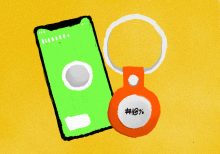| August 18, 2021 — Researchers from the Citizen Lab, at the University of Toronto’s Munk School, have conducted a novel analysis of Apple’s product engraving services, finding uneven, opaque, and at times thoughtless censorship practices. The report looks at engravings in six regions—mainland China, Hong Kong, Taiwan, Japan, Canada, and the United States—discovering over a thousand keyword filtering rules used to moderate content. Within mainland China, for instance, they found that Apple censors political and human rights content, and that this filtering bleeds into Hong Kong and Taiwan.
From previous work analyzing automated Internet censorship, researchers have amassed hundreds of thousands of keywords spanning numerous languages used to censor a variety of apps and platforms. Using these keywords, they automatically tested them against the API endpoints that Apple’s online store uses to determine whether to filter an engraving. Based on which engravings were filtered, they were able to systematically determine Apple’s keyword filtering rules.
Across all six regions, researchers found that Apple’s content moderation practices pertaining to derogatory, racist, or sexual content are inconsistently applied and that Apple’s public-facing documents failed to explain how it derives their keyword lists. For example, “NAZI” is filtered in Canada but not in the United States. While researchers believe this inconsistency originates from “NAZI” being included in a French-language subset used in Canada but not the United States, Apple’s documentation does not explain this.
The research additionally shows how Apple’s system for filtering engravings is used in some regions to prevent the engraving of racial slurs but can subsequently be used to curtail political speech. Within mainland China, for instance, they’ve discovered that Apple censors political content including broad references to Chinese leadership and China’s political system, names of dissidents and independent news organizations, and general terms relating to religions, democracy, and human rights. They also found that Apple applied much of its Chinese political censorship to the surrounding regions of Hong Kong and Taiwan, often in the absence of legal justifications.
“Apple’s broad, non-transparent, and at times thoughtless censorship in mainland China, Hong Kong, and Taiwan curtails users’ abilities to express themselves politically and religiously, violating their human rights.” – Jeffrey Knockel, Citizen Lab Research Associate
In light of evidence that Apple copied parts of its Chinese-language list from other lists, researchers believe that Apple does not fully understand what content they censor and that, rather than each censored keyword being born of careful consideration, many seem to have been thoughtlessly reappropriated from other sources. Clear, consistent, and transparent guidelines explaining why and how the company moderates content is therefore urgently needed.
For Media Inquiries
Miles Kenyon, Communications Specialist
Email: media@citizenlab.ca
Guide on Citing in Media
Title: Engrave Danger: An Analysis of Apple Engraving Censorship across Six Regions
Authors: Jeffrey Knockel and Lotus Ruan
Published by: The Citizen Lab, Munk School of Global Affairs & Public Policy, University of Toronto
Publication Date: Wednesday, August 18, 2021
URL: https://citizenlab.ca/2021/08/engrave-danger-an-analysis-of-apple-engraving-censorship-across-six-regions/
FAQ: https://citizenlab.ca/2021/08/apple-engraving-censorship-explained/ |
